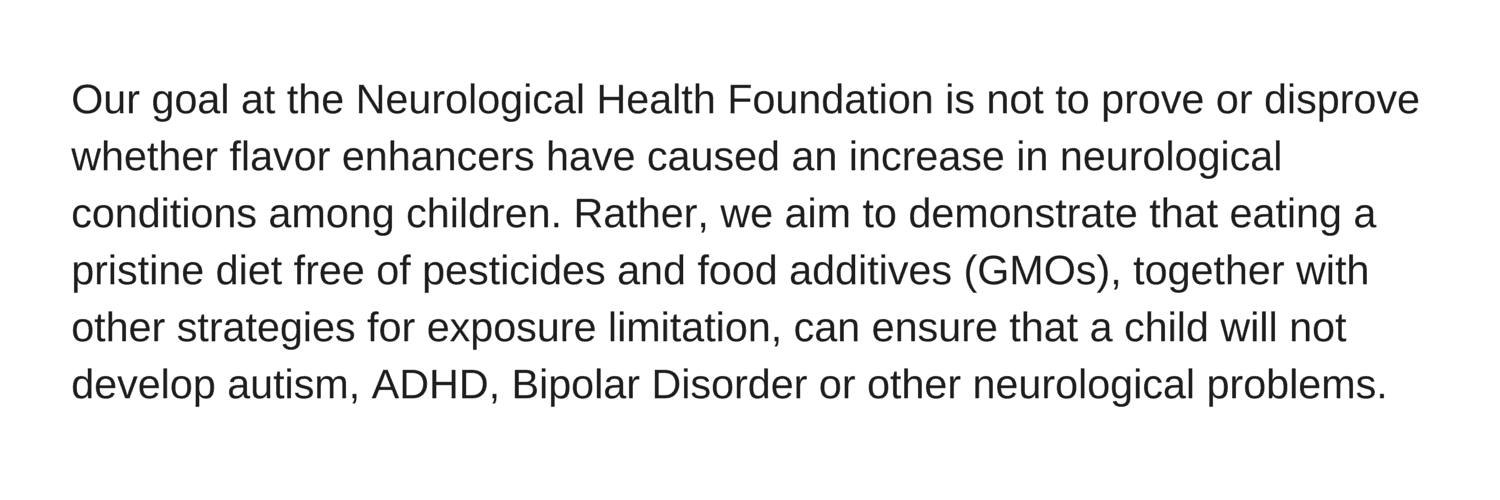
In the early 1940s, modern farms started using pesticides and herbicides to increase crop output. Since that time, food manufacturers have introduced more and more chemicals into the food chain not only in the form of herbicides and pesticides, which have been linked to neurodevelopmental disorders, but also from flavor enhancers (chemical additives) that make food taste better and in some cases influence neurological functions in the brain.
Although researchers have not determined a direct correlation to neurological problems with all modern day additives, many neurological experts and other health professionals believe that the increased use of food additives in the modern diet of industrialized countries is contributing to the increase in neurological illness among children and adults.
Today, the modern diet commonly contains flavor enhancers, herbicides, and pesticides, as well as genetically modified (GMO) additives that affect how the human body processes the nutrients. For example, the additives mono-sodium glutamate (MSG), hydrolyzed vegetable protein, and Aspartame are chemical compounds that are classified as “excitotoxins” by many neuroscientists. Commonly used by modern food manufactures to enhance the flavor of food, these excitotoxins are similar to amino acids found in neurotransmitters in the brain. Given this fact, researchers are questioning whether consuming food additives in larger quantities can have a detrimental impact on brain function or aggravate neurodegenerative diseases.

